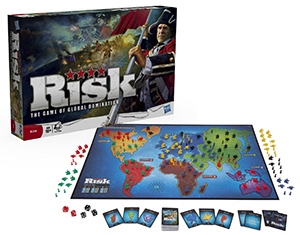
The use of the words "risk" and "uncertainty" in vernacular English leaves the relationship between the words imprecise.
That is, if I were to ask you, dear reader, what is the difference between risk and uncertainty, there would be no univocal "right" answer, though the words clearly are not synonyms. In general, we think of risk as a less-than-certain loss, so uncertainty figures into it, but uncertainty figures into a lot of other words too (such as "hope," which we think of as a less-than-certain gain).
In finance, and in other areas as well, there has been some movement toward using the two words in a rigorously paired way, such that, to borrow a formulation from the George W. administration, "risk" represents the known unknowns of a situation, "uncertainty" represents the unknown unknowns.
Here's a straightforward example: I know that a certain stock is interest-rate sensitive. I know that the Federal Reserve is meeting tomorrow to discuss rates. I don't know what they will do in that meeting, but at least I know that I don't know. So does the market in general. Thus, the risk of an adverse decision may be said to have been priced in to the stock already today.
Uncertainty, though, under this pairing is something much woolier. The unknown unknowns. On September 10, 2001, I had no clue that Wall Street and the Pentagon would come under attack the following morning. That wasn't just an unknown like the outcome of a Federal Reserve meeting. It was an unknown unknown, and the consequences for asset values cannot be said to have been priced into anything on 9/10.
The same distinction is also helpful when one tries to think about something as personal as travel plans. Suppose I have plans that involve making a connection at an airport in Israel. Intuitively, I am fearful. I might be at that airport at a moment of terrorist attack??!?
Is my fear a reflection of a risk or of uncertainty? Another way of asking the question: can I get a handle on it quantitatively?
My thoughts on the subject today run no further, though as always I'd be happy to read the wisdom of commenters. And no, I don't have any foreign travel planned. I'm only philosophizing.
A risk is of an adverse consequence of an action. An uncertainty does not imply an adverse consequence. If I buy a lottery ticket, then I risk losing a dollar and I am uncertain whether I will lose a dollar, because I'm uncertain whether I'll win; I do not say that I "risk" winning. Whether a possible consequence is known or unknown is irrelevant. There is both a risk and an uncertainty that Donald Trump will declare the selection of the lottery winner void if it is not he; it doesn't matter that, because he has never threatened to do this, it is an unknown unknown.
ReplyDeleteHenry, You're saying that "risk" is "indexical"?
DeleteChristopher,
DeleteDo you mean that a consequence that is adverse for me might not be for you? If so (or if not so), I don't understand your point.
I'm thinking through your def of risk as the adverse consequence of an action. It doesn't sound right. I can speak of the "risk" of my contracting disease X this year, a risk that will vary will a lot of factors, most of them pretty well known to medical science (known unknowns). Contracting X needn't necessarily by the adverse consequence of any decision of mine. It MIGHT be (I might have made a deliberate decision to forego an available vaccine for X), but that seems irrelevant to the semantic question of whether "risk" is an apt word for the possibility I might get it before Dec. 31.
DeleteI agree, but dropping "of an action" does not affect my point that a risk, by contrast with an uncertainty, implies something adverse. You would not speak of the "risk" of recovering from a disease, but you would speak of the uncertainty of whether you'd recover.
DeleteSo risk is analogous to hope? "Risk" in common use is simply our word for an uncertain but plausible bad event, whereas "hope" (as in "my quick recovery from this illness) is our word for an uncertain but plausible good event. Fair enough? I say "plausible" in each case because I still think that risk, and hope for that matter, refer to the known unknowns.
DeleteThis comment has been removed by a blog administrator.
ReplyDelete